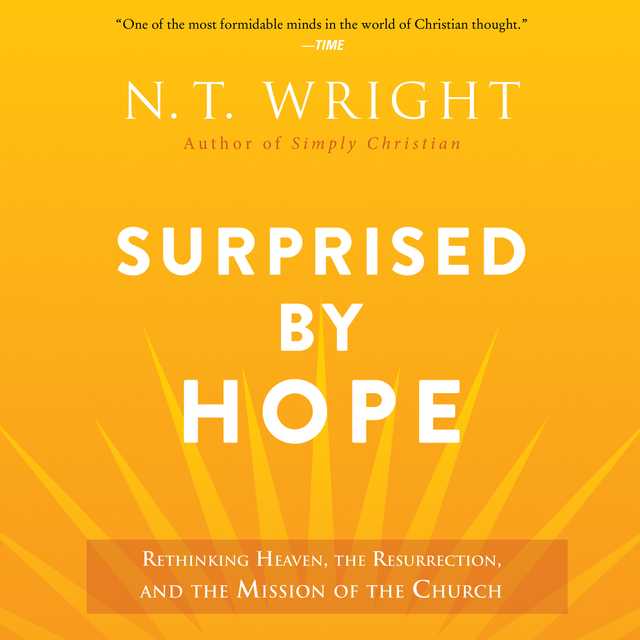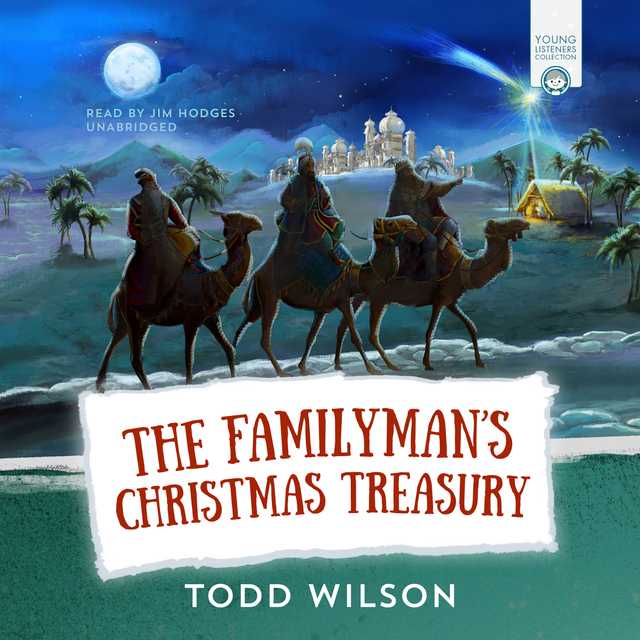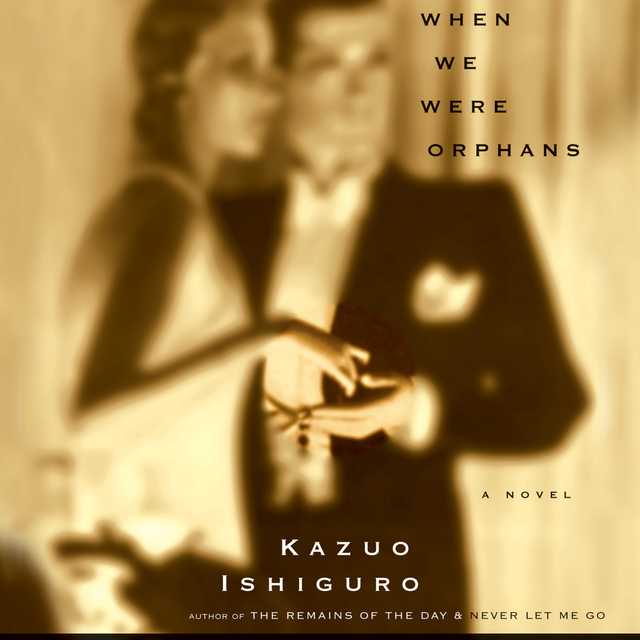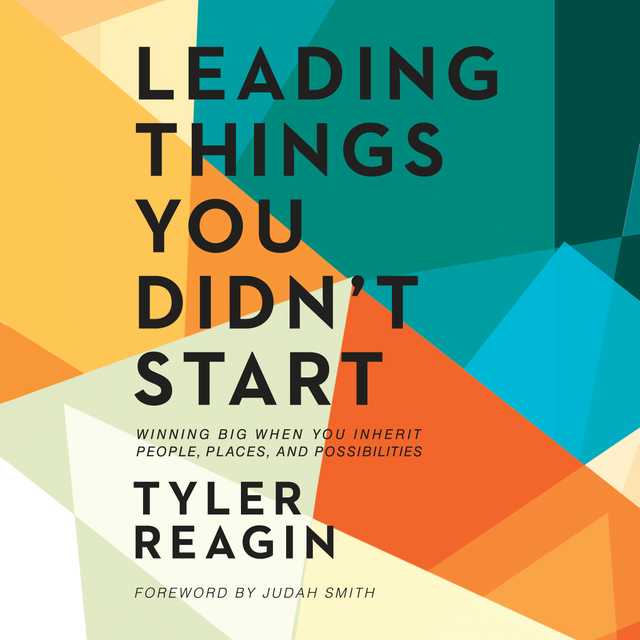Surprised by Hope Audiobook Summary
In this groundbreaking book–available in audio for the first time–renowned Bible scholar, Anglican bishop, and bestselling author N. T. Wright argues that Christians have not distorted the Bible’s message about heaven and what happens after we die.
For years, Christians have been asking, “If you died tonight, do you know where you would go?” It turns out that many believers have been giving the wrong answer. It is not heaven.
Wright outlines the present confusion about a Christian’s future hope and shows how it is deeply intertwined with how we live today. Wright asserts that Christianity’s most distinctive idea is bodily resurrection, and provides a magisterial defense for a literal resurrection of Jesus. Wright then explores our expectation of “new heavens and a new earth,” revealing what happens to the dead until then and what will happen with the “second coming” of Jesus. For many, including many Christians, it will come as a great surprise to learn that heaven comes to earth instead of us going to heaven.
Wright convincingly argues that what we believe about life after death directly affects what we believe about life before death. For if God intends to renew the whole creation–and if this has already begun in Jesus’s resurrection–the church cannot stop at “saving souls” but must anticipate the eventual renewal by working for God’s kingdom in the wider world, bringing healing and hope in the present life.
Other Top Audiobooks
Surprised by Hope Audiobook Narrator
James Langton is the narrator of Surprised by Hope audiobook that was written by N. T. Wright
N. T. Wright is the former Bishop of Durham in the Church of England and one of the world’s leading Bible scholars. He serves as the chair of New Testament and Early Christianity at the School of Divinity at the University of St. Andrews as well as Senior Research Fellow at Wycliffe Hall, Oxford University. He has been featured on ABC News, Dateline, The Colbert Report, and Fresh Air. Wright is the award-winning author of many books, including Paul: A Biography, Simply Christian, Surprised by Hope, The Day the Revolution Began, Simply Jesus, After You Believe, and Scripture and the Authority of God.
About the Author(s) of Surprised by Hope
N. T. Wright is the author of Surprised by Hope
More From the Same
- Publisher : HarperAudio
- Abraham
- American Gods [TV Tie-In]
- Dead Ringer
- House of Sand and Fog
- Prey
Surprised by Hope Full Details
| Narrator | James Langton |
| Length | 11 hours 6 minutes |
| Author | N. T. Wright |
| Category | |
| Publisher | HarperAudio |
| Release date | February 27, 2018 |
| ISBN | 9780062836342 |
Subjects
The publisher of the Surprised by Hope is HarperAudio. includes the following subjects: The BISAC Subject Code is Christian Theology, Eschatology, Religion
Additional info
The publisher of the Surprised by Hope is HarperAudio. The imprint is HarperAudio. It is supplied by HarperAudio. The ISBN-13 is 9780062836342.
Global Availability
This book is only available in the United States.
Goodreads Reviews
Cindy
April 24, 2022
I don’t have time to review this properly and I don’t agree 100% with the last third of the book, but what an encouraging Easter season read for me. A lifetime of Bible reading came into focus.
Andy
December 26, 2013
I like my beer hoppy, my scotch peaty, my coffee black, and my resurrection embodied.
Bryon
December 09, 2012
I have a new favorite author/theologian in N.T. Wright, author of Surprised by Hope. He knows how to communicate lofty, theological concepts in a way that both makes sense and engages the reader to think. So much of what we think about theology is tainted by our church and political.The mistake that many are making these days is they are re-INVENTING and re-DEFINING theology. Some people are taking the party's theological line without thinking about it at all. Re-THINKING is absolutely healthy and necessary.Wright doesn't get too complicated. He looks at one topic: "thy Kingdom come, thy will be done on heaven as on earth." He looks at that phrase in the Lord's Prayer in light of Heaven, the Resurrection, and the Mission of the Church.By the time you get done reading the book, you actually feel hopeful - like God wants to do great things with your life and that He wants to develop your gifts for eternal kingdom work and application. How cool is that?http://mondokblog.blogspot.com/2008/0...
Jacob
October 12, 2020
I've been thinking of heaven lots since Josh died. When he died, I KNEW that there was more to the resurrection and heaven then I had thought before, and with longing I've been thinking lots about it. NT Wright offers a richer, more biblical picture of the resurrection than I'd ever considered, and it is a picture that gives me much more hope!Each chapter was earth-shattering - in page after page, Wright shatters our view of "escaping" to heaven and instead focuses on the reality of the Resurrection for the kingdom here on earth. Hard to think of a book that shaped me recently as much as this one.
Jason
August 20, 2011
Let’s say you’re a Christian reader—not the type who reads heavyweight theology. You might read a couple of pages of Grudem from time to time. You read Rick Warren with your church, toughed through Tim Keller after you heard your pastor quote him a few times, and even picked up Platt when you heard someone tell you that you were called to the mission field … along with every other Christian you know and don’t know. You spend each day proud that you’re not of this world, and that you’re just passing through. You live a content life knowing that everything’s all right between “you and Jesus.” You finally feel comfortable telling the tract hoards that your response to Jesus, if you died tonight and He asked “Why should I let you through the pearly gates of My heaven?” would be “Only by Your blood!” You’ve stopped smoking, drinking, cussing, and listening to secular music because you know Jesus might turn you away if you were to arrive at His gates flicking a cigarette, swigging from a dark brown bottle, and, with your usual curled upper-lip and slight squint, offering the cherubim and seraphim a confident yet playful “What’s up, bitches?”—all while the sorcery of that worldly vixen Taylor Swift flows through that one earbud hanging from your head. If this is you, you might find SURPRISED BY HOPE a challenging and insightful read. Wright won’t convince you that all your moral decisions (as mentioned above), regardless of your sincerity, will not get you to heaven. He’s not another rank-and-file member of the tract hoard … extended edition. Wright’s book just might pull the floor from beneath your feet and convince you to stop alienating and victimizing yourself in this world—a world in which you’ve been convinced does not apply to you because of your status as a “citizen of heaven.” He might convince you that Jesus has saved you FOR the world and set you apart to bring forth His Kingdom by valuing it as a the stage on which the last three acts will unfold. He might bother you when his idea of “heaven” doesn’t align with the alto part of that hymn you like so much. He might make you question that image of the Jigsaw God you used to and still worry about (before you decided to stop watching horror movies like the SAW franchise). He might even convince you to ask the same questions Rob Bell is asking—the ones your pastor told you not to read as part of his well-meaning duty to protect his flock from the goats prancing bleating the shofar around the Walls of Orthodoxy. But if you’re the scholarly pastor or the arm-chair theologian, you should probably skip out on this one (unless you want to steal some great analogies to share with your congregation or Sunday School class) and read Wright’s unfinished magnum opus Christian Origins and the question of God Series, which includes THE NEW TESTAMENT AND THE PEOPLE OF GOD, JESUS AND THE VICTORY OF GOD and THE RESURRECTION OF THE SON OF GOD. You should skip SURPRISED and go for the more detailed, footnoted arguments of the same information—as a matter of fact, most of what you’ll find in SURPRISED was taken straight from these three books—so if you’re the type to critically evaluate, I say go for the depth and get Wright’s series instead.
Traci
August 06, 2022
Excellent. N.T. Wright is always a trustworthy guide.
Ben
April 07, 2011
At risk of sounding hyperbolic, let me start this review by saying that Surprised by Hope is not only one of the best books I've ever read, it's also among the most important. Let me also say that anyone considering reading Rob Bell's latest, Love Wins, should skip that book and read this instead. Surprised By Hope is much better written, contains all of the good theology present in Love Wins (or more accurately, Love Wins contains Surprised By Hope's theology) and avoids and corrects the major theological errors in Bell's book. In this book, Wright reexamines our view of eternity in light of biblical teaching. His basic argument is this. Our final destination is not a disembodied existence in some alternate dimension called Heaven, but the merger of Heaven and Earth which happens at the second coming. Our hope is in the resurrection of the dead and the renewal of creation, not in an evacuation plan that leaves this world behind. The argument is far more complex than that, but even in that brief description you can see that this is a book that will get under some people's skin. Wright goes after and dismantles Left Behind eschatology, including the rapture (an unbiblical concept based on a complete misreading of 1 Thessalonians 4:17). This will be disruptive for many, but hopefully those in that camp will at least give Wright's arguments the consideration they deserve. He's not trying to reinvent Scripture but instead is holding our traditional views and doctrines up to the light of Scripture. His goal is a more biblical view, not an abandonment of biblical teaching. The book is divided into three parts. In the first, he goes back to Jewish world Jesus was apart of. He shows how Judaism's hope was not focused on a disembodied Heaven but on the resurrection of the dead. Jesus was, as it says in 1 Corinthians 15, the firstfruits of that resurrection. Therefore, the bodily resurrection of Jesus is not a secondary issue, it is everything. If we lose it, we lose Christianity. This section also includes one of the best apologetic defenses of the resurrection I've come across. The second part looks at the implication of the resurrection, both of Jesus and the promised resurrection of the dead, on our views of eternity and eschatology. It's here that Wright discusses the theology outlined above. His writing about the new creation and where our hope as Christians truly lies is deeply moving. More than once I found myself close to tears reading his words. The hope of the Gospel is better than what we've been taught. It's a similar theme to what's encountered in John Eldredge's work, and I'd recommend this book especially to fans of Eldredge. For as much as I appreciate his work, it does lack the intellectual depth and theological rigor found in Wright. Eldredge goes for the heart, Wright more for the head and both wind up with an incredibly moving and powerful view of what life in Christ is truly all about.In the final section, Wright examines what the church's mission should be for today in light of this theology. He argues that the church's job is not simply to sit around and wait for Heaven but to help bring about the new creation here and now, not as a replacement for what's to come but in anticipation of it. Wright argues that our focus should be on three things: justice, beauty and evangelism. We're too fight injustice in this world, create art and beauty that neither denies evil nor succumbs to it but instead reflects the hope of our faith, and proclaim the Gospel that Jesus is king and that all are called to obediently follow him. Reading other reviews, I've noticed some are particularly harsh on Wright in this section because of his focus on justice. Let me say first that I am very conservative politically. Wright and I would likely not see eye to eye on many political issues. I don't fully agree with everything he says in his section on justice, but I do 100% agree with his theological point behind what he says. We are called as Christians to fight injustice, to confront systems of corruption and oppression and to care for those who have no voice. Wright emphasizes economic injustice above all else. I think we must also include things such as the 4,000 babies aborted everyday in the US. However, we both agree that Christians are called to fight injustice. I find it unfortunate that many of my fellow conservatives have been so shortsighted in analyzing this section of the book. Surprised By Hope is a life changing read. I cannot recommend this book enough. I believe it desperately needs to be read, understood and put into practice by the western church. It will be to our shame should we fail to listen to Wright's critiques of our beliefs and actions.
Caleb
April 28, 2020
huge fan. love the resurrection
Mwebel
January 08, 2009
After 20 years of feeling that I had a decent idea of what happened to us after we die, this book left me reeling. I realized that almost all of my ideas of heaven and unity with God were based, not on the Bible, but on cultural conceptions. This book helped me understand the Biblical statement on what happens beyond the grave, and that in turn gives me a new hope. I hope this hope changes the way I approach this world, not just the way I perceive the life to come. Another fascinating angle to this book is the discussion of worldview. This, more than any other Christian book I've read, openly discusses the influence and importance of our worldviews. The analysis is academic, but accessible to all readers. I hadn't realized how deeply set my assumptions were, not in the Bible, but in my culture. I need to relearn the Biblical interpretation of reality.
Adam
January 13, 2022
You’ll never think of heaven the same way again after reading this! But, it’s so very hopeful and a great course correction for getting back to the heart of Christian faith. Highly recommend.
Rachel
November 06, 2020
This is at the top of my list of the most important books for the church written in our generation
Glendon
February 05, 2022
I've finally returned to this one! By which I mean I still technically have a chapter or so to go but, I wanted to log it because my thoughts are pretty well made.I first read Surprised by Hope in the first year of my undergrad and really did not enjoy it. For the life of me, I can not articulate to you why that was. I managed to dig up the paper I wrote on the book, and while it's not an overly negative review, there is a lot of passive-aggressive distancing between 18-year-old me and Wright's views. I distinctly at one point recall looking up Wright online and determining (almost assuredly from angry fundamentalists) that Wright was a heretic. But it wasn't like I held really tightly to a literalist spiritual view of heaven at that point? I really don't know what I was so angry about. The best I can tell is that I was really thrown off by Wright's diction, which is a valid criticism, but apparently, then I was very heated about a guy using long sentences. Alas, I basically haven't been able to stop thinking about the core themes of this book since reading it some six years ago and it's slowly crept through my entire worldview until I just had to go and give it another shot. I don't know if that's a credit to Wright's compelling argumentation or the mentors I've had along the way, but either way, this felt something like a homecoming.To be clear, this is a very good book. Wright covers his bases thoroughly and makes sure every point is well-researched and well-supported. His structure lends itself well to his study, moving from the resurrection itself to the direct consequences of that resurrection to the missional consequences. Wright compellingly insists upon the necessity of physical restoration as a bedrock to the New Testament believers, demonstrating how combatting the dualism of modern spiritualism creates a stunning new view on life. If matter matters, then the things we do on Earth and the way we engage in society on Earth has fundamental importance. As my own views on the world have changed in the past six years, this has gone from a vaguely comforting notion to a radicalizing maxim. I think at 18, the idea that the Christian's goal was "New Earth" and not "Heaven" was a fun way of splitting hairs and correcting people at dinner parties (did I go to dinner parties at 18?). Now, as Wright correctly argues, it is transformative. Not only does it create an afterlife that is actually attractive, rather than abstractly harmonious, it also creates a reason to live. A reason to fight for justice and order and goodness and rightness in our present world. The central criticism I have of Wright's work does go back to my 18-year-old self's frustrations, which is that this isn't exactly an approachable work. Wright is definitely writing to theologians, and while there's nothing wrong with that, it does make me sad because this is *the* definitive book about these issues and I find it hard to recommend to the youth I regularly come across who ought to read it. I appreciate Wright's work a hell of a lot more after six years of studying poetry and Biblical exegesis; but I think even if I myself were to hand it over to the Me at 18 years old, he would still give up halfway through in frustrating and begin skimming to the end. The joke's on him, I suppose, because six years later I can't find a whole lot to disagree with Wright on.
Kyle
January 24, 2023
NT Wright is one wise dude. I think this book does a great job of unmasking popular end times theology and giving a clear biblical alternative. It’s pretty wild how much our theology can influence how we approach our faith. In this case, Wright points out the different missional focuses/strategies churches develop based on end times theology. Certainly worth a read in my opinion!“Resurrection doesn’t mean escaping from the world; it means mission to the world based on Jesus’s lordship over the world”
Jonathan
November 14, 2008
Surprised by Hope deals with two questions: What does the ultimate future look like? And how should we live in the present in light of that future?Personally, I wasn’t that “surprised” about Wright’s description of the future because it meshes well with my own views. It would come as more of a surprise to someone who holds to the Premillenial/Pretribulation eschatology of dispensationalists like Tim LaHaye (who made the popular “Left Behind” movies).While Wright addresses all the future issues of death, resurrection, the Second Coming, judgment, purgatory, paradise, heaven, and hell, his main emphasis is that heaven is not our ultimate destination. We don’t leave this world behind for our “home” in heaven. Heaven is coming down to join Earth in the new creation where God will be present with his people in a world of justice, healing, and hope. This is what Wright calls “life after life after death” or life after the resurrection.The final chapters 12-15 deal with the “So what?” question. Chapter 12 (my favorite) lays out the connection between the future and the present in the resurrection of Jesus, which is the inauguration and foundation for the Kingdom of God. It is “the decisive event demonstrating that God’s kingdom really has been launched on earth as it is in heaven.” “Precisely because the resurrection has happened as an event within our own world, its implications and effects are to be felt within our own world, here and now.” The book concludes with a discussion of how resurrection (“the power of Easter”) is the catalyst for mission. Resurrection power transforms people into new creatures to be agents of the transformation of the earth – agents who “move straight from worship of the God we see in Jesus to making a difference and effecting much-needed change in the real world.”
Drake
January 29, 2018
In Surprised by Hope, N. T. Wright argues that many Christians and non-Christians alike have a distorted picture of what the Bible teaches about our future hope. The obsession with "heaven," he argues, is completely misguided, as the Scriptures present heaven not as our final home but as an temporary rest until the final resurrection and the New Heavens and New Earth. It's important to grasp this, he asserts, not only to ensure that our doctrine is correct but also because our ideas about our ultimate destiny inevitably shape the way we live our lives today. Thus, someone who believes that their final state will be as a disembodied soul living in an ethereal space is going to approach life differently from someone who believes that the entire world as well as their own bodies are going to be resurrected, made perfect, and filled with God's glory. Thus Christians must ensure that they develop a biblical view of the end so that they can live in light of it now.Positives:1. Wright is, well, "right" in his main point: that is, the Scriptures present a far more substantial, far more glorious picture of our future hope than simply "dying and going to heaven." He rightly points out that the emphasis of the New Testament is far more on the final resurrection and New Heavens and New Earth than on the intermediate state.2. He gives a summarized but brilliant defense of the historical resurrection of Jesus as well as presenting the theological and eschatological significance of the resurrection. This was one area where I greatly benefited from Wright's insights. He provides a great overview of the worldview assumptions of both Jews and pagans in the first century, showing that neither group would have been expecting the resurrection of a single person like Jesus and would have been naturally inclined to doubt such an event. The connections he draws between Jesus' resurrection (and His ascension) and the New Creation were at times eye-opening for me.3. Many of the applications he makes towards the end of the book - e.g. the effect that the New Heavens and New Earth should have on our church life, our prayer life, our missions work, our vocations, and our reading of Scripture - were excellent.4. His last name is very appropriate, as Wright is an incredibly-gifted writer. I don't think I've read any other modern author whose writing style at times reminds me more of C. S. Lewis. His descriptions of the Lordship of Christ, the significance of Jesus' resurrection, and the glorious life we have to look forward to in the New Heavens and Earth were at times simply breathtaking.Negatives:1. Wright's treatment of the doctrine of hell was disappointing. Given the fact that he has no problems whatsoever making dogmatic statements about heaven, the resurrection, purgatory (which he doesn't believe in and makes a strong case against), the second coming, and the New Heavens and Earth, it seems strange that he comes off as extremely wishy-washy on the Scriptural teaching about hell. His argument that Jesus' statements about judgment were only referring to the threat of Roman intervention is unconvincing, and his passing over of other passages like Revelation 14 on the basis of their being difficult texts to understand is, given the nature of his book, inexcusable. The position he lands on is that hell is indeed real and everlasting, but that the people in hell are no longer human beings but formerly-human creatures whom God simply leaves to themselves to live eternally in their own selfishness. As Trevin Wax has pointed out, Wright's view of hell is "more akin to C.S. Lewis than to anything clearly taught in Scripture."2. His excursus on Third World debt feels very out-of-place and poorly handled. Wright indulges in more overstatements here than in any other section of the book. His tone comes off more as an angry blogger than a balanced scholar. He makes several assertions -- such as claiming that third world debt is the single greatest moral dilemma of our day -- without providing adequate data or arguments to back them up and then asserting that those who disagree with his perspective are in the same boat as those who were on the side of slavery and segregation in generations past. Thankfully, this subject doesn't take up too much space in the book; but it lasts long enough to be frustrating.3. In addition to the two major disagreements above, I found myself disagreeing with Wright on other issues that he brings up but doesn't give as much space to. Some of these include: his claim that Jesus said absolutely nothing about His second coming (though he does provide an interesting interpretation of the traditional texts and parables used to counter that claim); his belief that Christians can pray FOR the saints in heaven (i.e. for their rest and joy), though he discourages Christians from praying TO the saints as intercessors in the place of Christ; his view of justification (which I won't get into here due to the massive amount that's already been written about it). One spot in the book where I was particularly taken aback was where he mentions the Holy Spirit and uses the pronoun "he" but then in parentheses suggests the Spirit could also be referred to as "she." He gives no reasons for this, though I suspect that it has to do with the feminine form of the Hebrew word “ruach” (which is a weak argument for referring to the Spirit as "she). Still, one should not make such a bold and controversial suggestion without providing something to back it up.So what was my overall opinion of the book? In a word (or two), it was "mostly great." In my opinion, the positives definitely outweigh the negatives, and discerning Christians will find much to chew on, learn from, and enjoy in this book. It serves as a powerful reminder that Jesus' resurrection is not only something we celebrate at Easter; instead, it is the central event of human history, the ushering in of God's new kingdom, and the firstfruits of the grand resurrection to come in the New Heavens and New Earth. For that, I greatly benefitted from this book and would recommend it (with caution) to others as well.
Brenton
April 21, 2020
This is my second time reading Surprised by Hope, and I think this is a very strong book. I probably would have given it a 5-star rating the first time; it is an important book for me. Wright helps me give voice to what I have been working on and thinking about for a decade or so.The main weakness of this book is that he links a lot of conversations elsewhere that he doesn't fully play out here. He is strongest walking through biblical texts, but he doesn't spend a lot of time on in the texts.While this is not as important as his foundational biblical-theological works, it is an excellent volume for those interested in the topic.
Most Popular Audiobooks
Frequently asked questions
Listening to audiobooks not only easy, it is also very convenient. You can listen to audiobooks on almost every device. From your laptop to your smart phone or even a smart speaker like Apple HomePod or even Alexa. Here’s how you can get started listening to audiobooks.
- 1. Download your favorite audiobook app such as Speechify.
- 2. Sign up for an account.
- 3. Browse the library for the best audiobooks and select the first one for free
- 4. Download the audiobook file to your device
- 5. Open the Speechify audiobook app and select the audiobook you want to listen to.
- 6. Adjust the playback speed and other settings to your preference.
- 7. Press play and enjoy!
While you can listen to the bestsellers on almost any device, and preferences may vary, generally smart phones are offer the most convenience factor. You could be working out, grocery shopping, or even watching your dog in the dog park on a Saturday morning.
However, most audiobook apps work across multiple devices so you can pick up that riveting new Stephen King book you started at the dog park, back on your laptop when you get back home.
Speechify is one of the best apps for audiobooks. The pricing structure is the most competitive in the market and the app is easy to use. It features the best sellers and award winning authors. Listen to your favorite books or discover new ones and listen to real voice actors read to you. Getting started is easy, the first book is free.
Research showcasing the brain health benefits of reading on a regular basis is wide-ranging and undeniable. However, research comparing the benefits of reading vs listening is much more sparse. According to professor of psychology and author Dr. Kristen Willeumier, though, there is good reason to believe that the reading experience provided by audiobooks offers many of the same brain benefits as reading a physical book.
Audiobooks are recordings of books that are read aloud by a professional voice actor. The recordings are typically available for purchase and download in digital formats such as MP3, WMA, or AAC. They can also be streamed from online services like Speechify, Audible, AppleBooks, or Spotify.
You simply download the app onto your smart phone, create your account, and in Speechify, you can choose your first book, from our vast library of best-sellers and classics, to read for free.
Audiobooks, like real books can add up over time. Here’s where you can listen to audiobooks for free. Speechify let’s you read your first best seller for free. Apart from that, we have a vast selection of free audiobooks that you can enjoy. Get the same rich experience no matter if the book was free or not.
It depends. Yes, there are free audiobooks and paid audiobooks. Speechify offers a blend of both!
It varies. The easiest way depends on a few things. The app and service you use, which device, and platform. Speechify is the easiest way to listen to audiobooks. Downloading the app is quick. It is not a large app and does not eat up space on your iPhone or Android device.
Listening to audiobooks on your smart phone, with Speechify, is the easiest way to listen to audiobooks.






























